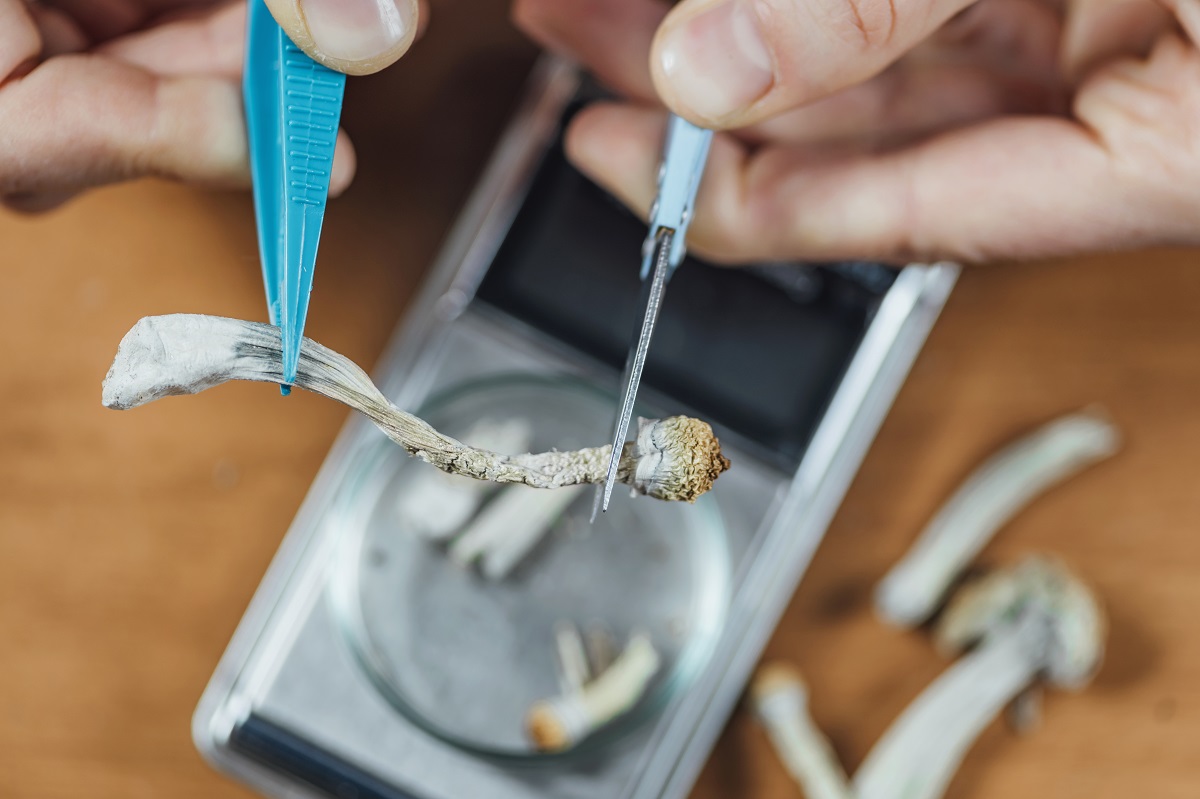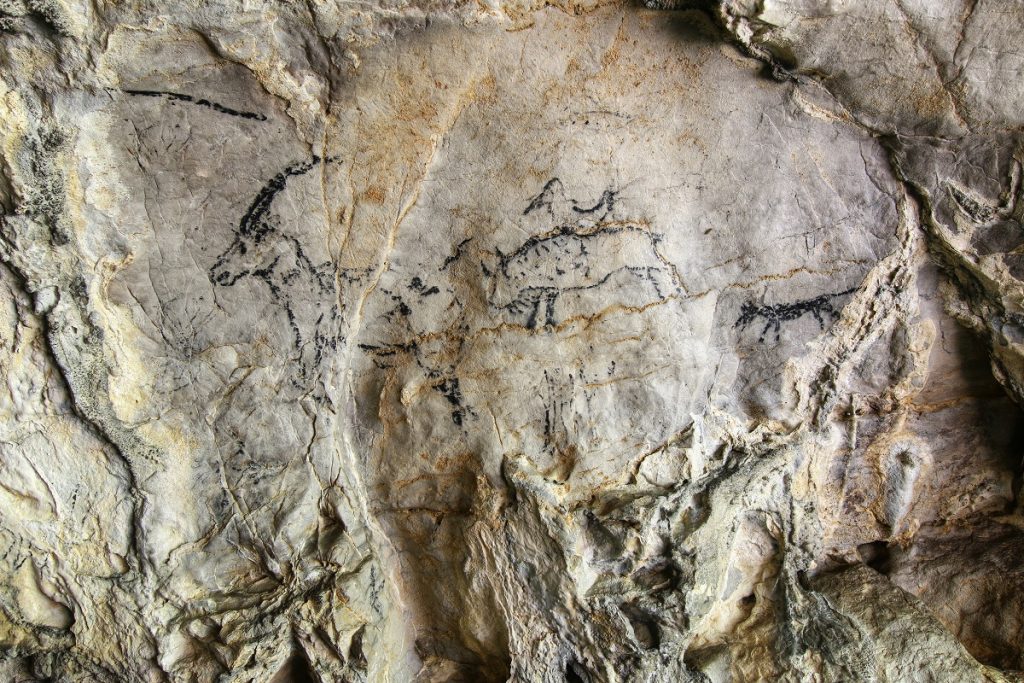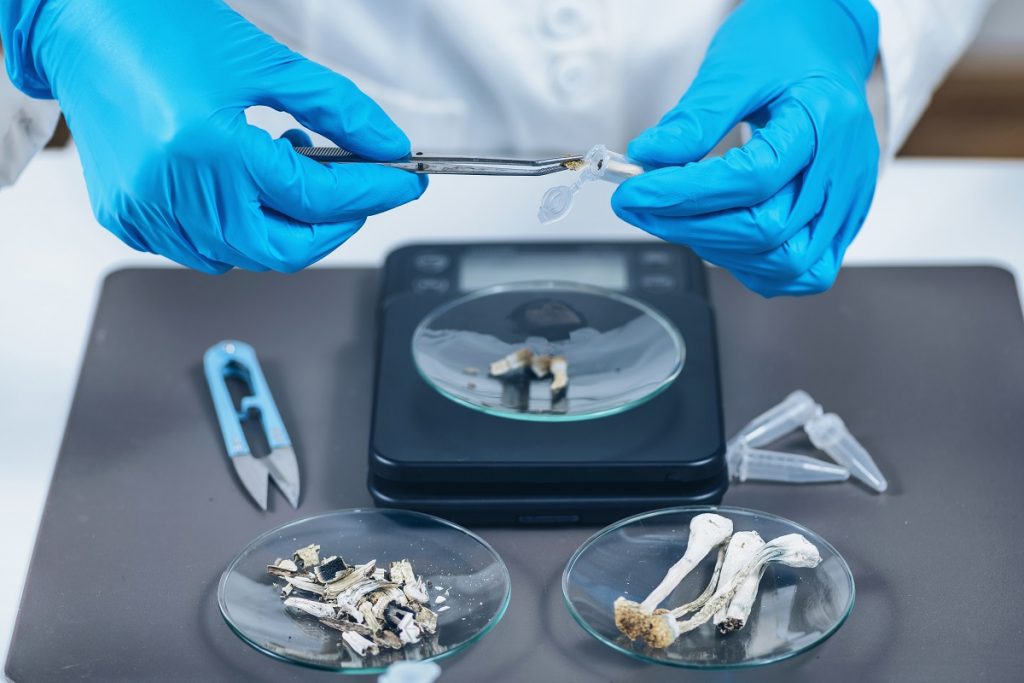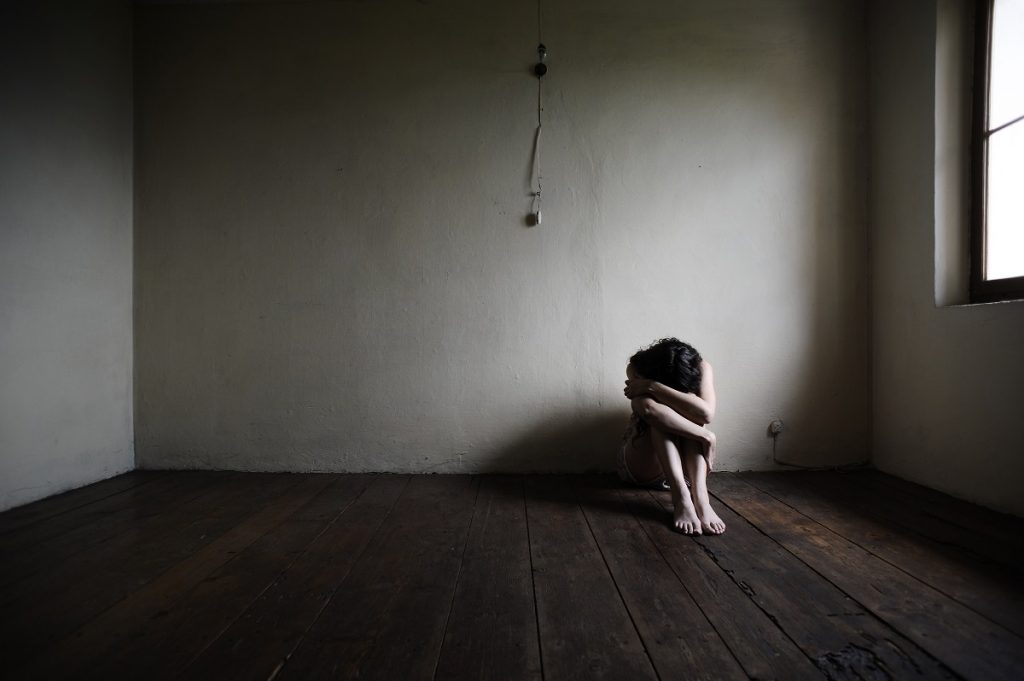
Revive Therapeutics is the first American company to manufacture psilocybin oral strips. While the products are not available for patients yet, the clinical trials are underway to test the efficacy of the dissolvable strips for mental health treatments.
In many international locations, psilocybin (the psychoactive compound in ‘magic’ mushrooms) are legalized. In fact, in countries like Brazil, the British Virgin Islands and the Netherlands, cultivation and consumption of psilocybin is legalized. In every other country however, they are a prohibited substance.
So, why would Revive Therapeutics and other compounding manufacturers start to create methods of accurately dosing psilocybin? Because it is anticipated that controlled, doctor supervised mental health treatments may be available soon. For patients with the most severe and potentially life-threatening mental health conditions.

Just like cannabis, psilocybin use goes back thousands of years. How do we know that our ancestors used “magic” mushrooms? Art including cave paintings that date back to more than 10,000 BCE. Cave paintings in Australia date back that far, and in Spain, other prehistoric evidence has been found that were 4000 BCE.
There is even an Algerian mural that shows a special species of mushroom (Psilocybe mairei). That mural was created between 7,000 to 9,000 years ago. It was found by an Italian ethnobotanist Giorgio Samorini, in Tassili n’Ajjer, deep in the Sahara desert southeast of Algeria. Check out the picture of the Algerian “mushroom Shaman” on Psychedelic Review. He’s holding a lot of mushrooms.
Apparently, our cave dwelling ancestors came across mushrooms that didn’t poison them but allowed them to enjoy some other health benefits. Like pain relief. And possibly increased hunting and combat capabilities. They were not chilling out around the campfire, according to archaeologists. Mushrooms had a place in both medical and defense activities.
That would also explain why there are some pretty odd animals in cave paintings. Maybe tigers, bison, lions and bears were never ‘larger than life’ to anyone but prehistoric warriors who used mushrooms to numb pain and make themselves more agile and alert. And for religious purposes, spirit walking, vision quests and other psychological experiences supported by hallucinogenic mushrooms. Similar to the use of Peyote by American indigenous nations.
Short answer? Psilocybin. Not every mushroom has the same effect, or the special compound elements to create a hallucinogenic effect. It is actually called 4-phosphoryloxy-N,N-dimethyltryptamine. Psilocybin is found in dried or fresh hallucinogenic mushrooms that grow in certain areas of Mexico, South America, and also southern and northwest regions of the United States.
Scientifically, psilocybin shares many similar compounds to lysergic acid diethylamide (LSD). Psilocybin is classified as an indole-alkylamine (tryptamine).
A landmark research study was published in 2012, by a neuroscientist named David Nutt. It was sponsored by the Imperial College of London, and it studied the brain activity changes of people who were treated with psilocybin.
One of the most fascinating aspects of the Imperial College research study, was data on the areas of the brain that are enhanced and muted by psychedelic mushrooms. The study hypothesized that the area of the brain where the psychological “sense of self” was muted by psilocybin. And it was suggested that individuals who have treatment resistant depression (TRD) or severe post-traumatic stress disorder (PTSD) are overactivated in the medial prefrontal cortex and the medical parietal cortex.

Another area of the brain that was studied, was the posterior cingulate cortex and the anterior cingulate cortex. Those two parts of the brain are where the human ability to self-reflect comes from. When combined with the “sense of self” regions, the identity is formed. Or where we develop an opinion of ourselves and our own worth.
People who suffer from severe depression and PTSD statistically share a common symptom; they feel devalued as a result of the incident(s) and trauma(s) they experienced.
Now imagine that psilocybin treatments (administered in safe, controlled environments with doctor supervision) were used to give patients a reprieve from the negative emotions and inner dialogue? A series of therapies may be enough to successfully help a patient transition past the trauma. And break the cycle of inner negativity, and self-harm.
Treatment resistant depression is the most severe form of depressive disorders. One clinical study reported that as many as 30% of individuals who have treatment resistant depression attempt suicide. What researchers are not sure about, is whether the condition of treatment resistant depression causes a statistically higher suicide rate, or if the treatments administered to patients are a contributing factor.
Patients that have treatment resistant depression (TRD) are unresponsive to traditional or conventional therapeutics. Patients normally undergo a combination of pharmacological and cognitive behavioral therapy (CBT). For deep rooted childhood -traumas or severe post-traumatic stress disorders psychiatrists may also use regression therapies.
Studies have revealed that the deepest levels of trauma are the hardest to treat. The individual or patient may have compartmentalized or isolated the trigger(s) or suppressed them. Therefore, traditional psychotherapy can be ineffective. Some patients may have successfully suppressed the trauma to the extent that they do not even remember the triggering incident(s).
What holds promise for individuals with specific mental health problems, is the ability for psilocybin to break through suppressed emotions and traumas. It has also been successfully used (and can be requested per the “Right to Try” laws) for patients with terminal conditions. An extension of compassionate care protocols for patients in hospice.
Much like cannabis, until recently as a prohibited substance, it was difficult for medical researchers to legally acquire hallucinogenic mushrooms for study. But now, the use of psychedelics for a variety of mental health treatments is being pursued by researchers worldwide.
You may have tried a dissolvable strip to get a minty fresh breath. The formulation of oral strips is not new. But what Revive Therapeutics has done is develop an accurate way to microdose psilocybin. And a method that would be fast absorbing (similar to sublingual intake of tinctures) through the oral dose. Blood vessels close to the surface in the mouth make sublingual uptake a fast delivery method.
Not that psilocybin needs the extra help. Hallucinogenic mushrooms are very good at traveling straight through the central nervous system, and serotonin (5-HT) receptors. Serotonin is the neural transmitter that modulates mood, memory, cognition, memory and other processes.
There have been several controlled trials already that have suggested psilocybin can be used successfully for depression, and severe anxiety and trauma disorders. Some trials also evaluated the potential for psychedelic mushrooms to be used for treating psychiatric distress in patients with terminal conditions.

Revive Therapeutics chose the tannin-chitosan variety for their psilocybin oral microdosing strips. And they will be testing potency rates of up to 20 mg during the trial. Other delivery methods being considered for safe consumption are transdermal patches and flavored oral gels and foam products.The company got approval for the trial from the U.S. Food and Drug Administration (FDA). It was announced in a press release from Revive Therapeutics, dated March 5, 2020. This has prompted speculation that psilocybin may be a restricted, but legal therapy for at-risk patients with mental health disorders in the near future.
No Information on MarijuanaDoctors.Com should be used to diagnose, treat, prevent or cure any disease or condition. You can view our Full Disclaimer here.